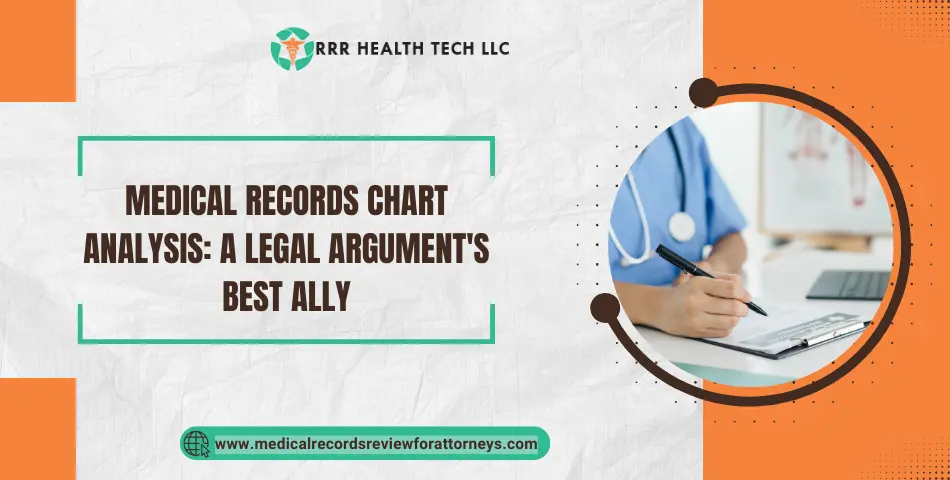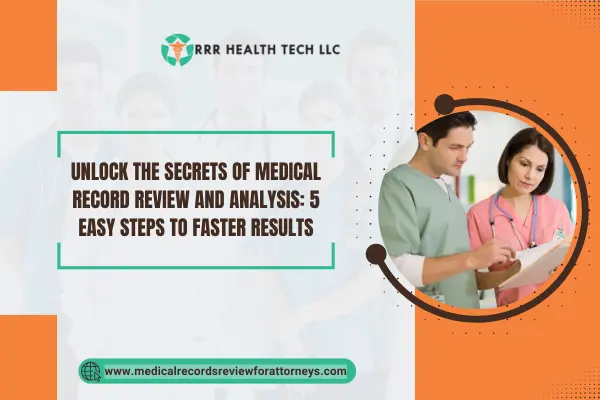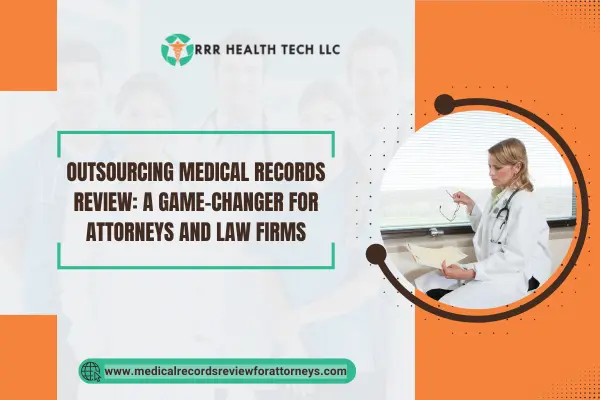
One of the most significant aspects of the complex landscape of lawsuits, especially in personal injury, medical malpractice, workers’ compensation, and product liability, is the chart analysis of medical records. Indeed, these records contain important facts that either promote or thwart the legal case at hand. The legal perspective hinges on a medical record review to establish medical history, prove liability, and attest to legal compliance.
This article will explore how reviewing medical records and allied facilities becomes a critical partner in the legal work.
The Role of Medical Records in Legal Proceedings
Medical documentation invariably serves as the backbone of legal arguments. Whether demanding personal injury, medical malpractice, or workers’ compensation, the medical record review supplies information that one weighs very heavily on.
The names of treatment said to have been carried out, medication prescribed, results from treatment, and perhaps the ultimate standards with which one deviates, are the sort of items that attorneys and legal professionals analyze to put together a solid case to verify consistency of what the claimant has been saying and identify medical negligence.
Analyzing Medical Records for Legal Arguments
Using a systematic approach ensures that the medical record review is backboned by a legal theory of value. Basic elements comprise:
- Medical history evaluation – Understanding pre-existing conditions and their impact on the case.
- Existence of consistency checks – Differences, inconsistencies, and contradictions determined in the medical records.
- Standard of care – Comparison of the treatment provided with the standard medical practice.
- Causation and liability – Linking the issue directly to the plaintiff claims in conjunction with treatment provided.
By conducting medical chart reviews, legal groups may use causality and breach standards to prove liability.
Identifying Relevant Information in Medical Records
The extraction of very pertinent items from voluminous medical documentation is a daunting task. Some of the most pertinent items include:
- Dates of medical procedures and treatment sessions.
- Details of diagnosis and prognosis.
- Medications administered and their effects.
- Documents relating to informed consent and their outcomes.
- Inconsistencies between medical records and the statements made by the claimant.
Charts prepared effectively ensure that all relevant information is available to start negotiations or go to court.
Establishing Causation and Responsibility through Record Analysis
Causation is one of the most critical aspects of any legal matter. A professional medical record review helps attorneys:
- Make the link clear: the occurrence and the medical assessments.
- Disclose those contraventions of standard treatment protocols.
- Show how the negligence of the other health-care professionals has led to injuries of the plaintiff.
Through an exhaustive review of clinical records, the legal team presents a good case for compensation for the plaintiff for physical suffering, emotional anguish with consequent financial loss.
Challenges and Solutions in Utilizing Medical Records for Legal Purposes
Medical records are quite useful in court battles; however, various issues arise in their application:
- Bulk of records – Any bulk of medical documentation consumes a lot of time to sift through.
- Heavy medical jargon – Legal teams may be lost in the interpretation of medical language.
- Missing or incomplete records – Gaps in legal arguments can be accounted to omissions.
- Different reports not meeting – Contradictory information puts a weakling in claims.
The answer lies in taking advantage of expert medical record review services wherein the medical review solutions will provide a fast track for complete and comprehensive analysis for attorneys.
Effective Presentation Strategies for Medical Records in Courtroom Settings
The method of presenting medical evidence can often determine the live or die of any court case. Strategies include:
- Chronological summaries – These make the timeline of medical events easy to follow.
- Graphics – Charts and other visual presentations could help clarify the complex medical data.
- Expert testimony – Use medical professionals to add clarification to the facts in issue.
- Detailed summarization – Emphasizes key points without unnecessarily burdening the court with too much detail.
This set-up underscores the importance and strengths of the argument in law that the lawyer needs to prove.
Case Studies Highlighting Successful Use of Medical Records in Legal Cases
Case Study 1: Personal Injury Claim
An individual injured on the job filed a personal injury claim in which the defense argued that the injuries were pre-existing. However, with a dissecting review of the medical records, it could be established that the claimant bore no prior injuries, and the current condition had been directly caused by the accidents. This analysis of the clinical records truly weighed heavily on the side of the plaintiff during settlement.
Case Study 2: Medical Malpractice Lawsuit
In a case involving medical negligence, the plaintiff alleged that a surgical error resulted in grave complications for the plaintiff. The defendant denied having acted negligently, but an expert review of the medical records showed that there were major breaches of acceptable practice. The inconsistencies between what was documented in post-operative treatment and the documentation regarding informed consent were instrumental in establishing liability.
Case Study 3: Workers’ Compensation Case
A worker afflicted with chronic back pain alleged that his condition was due to workplace injuries. Thorough analysis of medical documents, incorporating treatment history and expert medical record scrutiny, revealed that indeed the injury was work related, thus obtaining the necessary allowance.
Conclusion
Medical record analysis is a strong contender when the fight is on between lawyers, providing help in implementing firm theories, establishing liability, and presenting clients with fair compensation. Engaging experts in medical review solutions may simplify much of the work so that legal teams can concentrate on creating compelling legal arguments.
Need Expert Medical Record Review Services?
RRR Health Tech specializes in comprehensive medical review solutions designed to fortify legal cases. Contact us now and expedite your legal strategies with expert medical documentation analysis!


